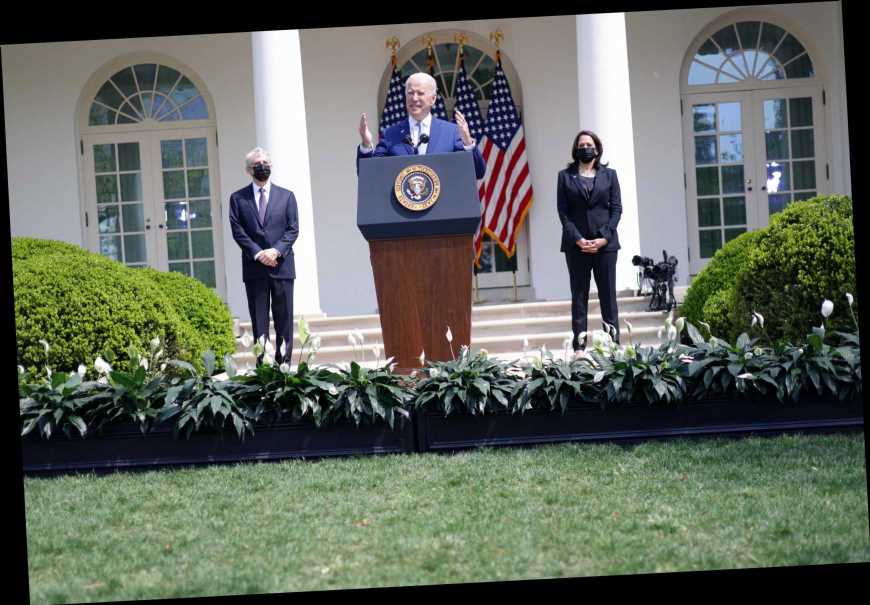LET me tell you about the worst pub in London: It’s called Ye Olde Fridge And Table and was established (by me) in my kitchen one year ago.
I’m its only customer and my French bulldog Rocco is the bouncer (he usually lets me in without ID).
? Read our coronavirus live blog for the latest news & updates…
Thursday is Karaoke Night (there’s a lot of Dolly Parton and Lizzo).
I cannot wait for it to close for ever. Because all I want to do is get back to the real thing, like so many of us.
I simply didn’t consider how important pubs were till they were gone.
It’s certainly not the booze I miss. If anything, I drink more during a typical lockdown afternoon than in the previous couple of decades combined.
No, it’s because the best pubs have always been what their names say — truly public houses, where you can meet anyone and everyone.
All human life rubs shoulders inside their comfy walls, — or it did, when you could still rub things with people outside your bubble.
PRECIOUS
It’s easy to forget how precious all that is. In fact, it actually took me a good few years before I properly understood what pubs were all about.
When I was a little Rinder in North London, heading down the local just wasn’t something we did.
In my parents’ household, food was the focus and drinking establishments didn’t get a look in.
The only thing I could “down in one” was a pint of chicken soup — prefer- ably with a chopped liver chaser — and if you’d mentioned Pilsners, I’d have guessed they were that nice family who sat near the back in synagogue.
But I did watch a lot of TV. So I observed the pubs at the centre of my soaps with quiet fascination.
From the Rovers Return to The Woolpack, they seemed to be pleasant- looking places offering constant scandals.
Here, apparently, you could enjoy a drink, some slapping, a light affair and a surprise pregnancy all before the first adverts.
Best of all were the invincible, Shakespearean landladies — the greatest, of course, being the Queen Vic’s Peggy Mitchell, throned in peroxide glory.
It was only later, when I finally got on with being grown-up, that I started to go to real pubs and discovered what friendly and democratic spaces they can be (though there’s not nearly enough slapping).
For me, one in particular sums up what’s best about them.
It’s a boozer in Manchester I visit with my mate Dave (he’s the sort of rough diamond who once burnt down his school) and is presided over by the landlady of my dreams.
She’s got a temper like an Icelandic volcano and all the social sensitivity of Chernobyl.
CRUCIAL SOCIAL ROLE
But she knows every old regular by name and would be the first to notice (and make enquiries) if they didn’t show up.
She helps people fill in their forms and, if they’re struggling, points them in the right direction for help.
Terrifying as she can be, she perfectly represents that crucial social role so often played by our pubs, especially the more independent ones (I can’t believe massive anonymous chains — eyes glued to the bottom line — would let their staff take time to help in the way smaller ones do).
It’s actually the most important thing about them.
Because pubs aren’t just for drinking in with mates — for many, they’re also alternative community centres and informal advice services.
Amazingly, even while shuttered during the pandemic we’ve seen them organising care packages for the elderly, supporting NHS workers and scores of other cracking community-based projects.
For so many publicans, helping out is in their DNA.
So, when the rules relax, let’s not forget how valuable and how vulnerable our great British pubs are.
After all, they were in trouble enough even before Covid pulverised so much of the hospitality industry.
When we’re allowed out again, they will need us more than ever. So I’m urging everyone to seek out and back the best, community-engaged local pubs they possibly can.
Support the places that ask not what their locals can do for them, but what they can for their locals.
These brilliant British boozers will bring you joy and get you drunk, and — best of all — you’ll help preserve something utterly wonderful and completely irreplaceable.
Friendship stood test of time
I WAS recently asked whether I would be on a TV cooking show with my primary school friend, S Club star, Rachel Stevens.
Naturally I agreed, as she was doing the cooking and I just had to sit there and gab.
Halfway through the programme, a photo of my barmitzvah party flashed up on screen with Rachel sporting an Eighties’ horror perm and me gap-toothed in a badly fitting tuxedo.
She went on to become FHM’s sexiest woman of all time, whereas I was recently asked by a kind Twitter user whether I was looking forward to getting my Freedom Pass soon (it’s not due for another 23 years).
Rachel and I may have aged differently on the outside but on the inside our friendship endures.
It is timeless . . . just as it was in that photo.
Grin up north
WE need a bit more Oop North down South.
It’s a cliche to say that everyone in the North doffs their flat cap at strangers.
But it’s not a cliche to say that folk from up North really are – in general – more friendly than their Southern counterparts.
And we need a lot more of that across the country.
I want someone to ask how my mother is, even when it’s none of their business – but just because they care.
And most of all, I want someone to be kind enough to incredulously ask, “How much?!” when I’m at the supermarket checkout.
We all need to be looking out for each other right now, and every little bit of Northerness helps.
Look is scowl play…
IT took me five tries to pass my driving test when I was 17.
I don’t count the first test as a fail. I blame the examiner, who was wearing a navy corduroy skirt which I considered then (as I do now) a deliberate attempt to distract me.
There was no way I could concentrate on the road while I was simultaneously redecorating this woman.
On my next attempt, the examiner went a sort of grey colour and demanded that we stop the car, asking rather uncharitably whether I was “trying to kill us both”. I wasn’t.
I shall never forget his face. It was a combination of get-away-from-me-now mixed with silly-little-boy. It would be years before I saw that look again.
It was at a posh box watching some sort of game where men chase a ball (I forget which one) and the face belonged to ITV news reporter Tom Bradby.
As I tried to chat about some of the international legal work I had done (and thought he’d be interested in) he glared at me like my driving examiner.
I don’t know whether I had upset him but I definitely know that whatever test he was giving, I failed at miserably. I’ll keep trying.
Carr's a tonic
I HAVE just finished listening to Alan Carr’s podcast Life’s A Beach, in which guests discuss their best holidays.
I tuned in this week because I was on it, and while I can’t stand the sound of my own voice, I love listening to everything Alan does.
He is like an anti-depressant in man form.
The episode was recorded early in lockdown so I’d forgotten a great deal of it, not least how hilarious and saucy our discussion was.
From rating the attractiveness of Argentinian vagrants to naked bathing in the Siberian tundra, our discussion was like Judith Chalmers on steroids covered in glitter.
Bet you want to listen too now.
Such a shady tactic
MY friend’s husband is the type of bloke you hope all your friends will marry.
He doesn’t want much out of life. Like millions of others, he is part of the uncelebrated whose mission is to be the best dad and husband they can be.
He got a job with British Gas a number of years ago and signed a contract with them.
He was excited when he started and over the years lived up to his side of the bargain, working through finger-numbing winters to make sure that the most vulnerable never went without heat.
As lockdown took hold, British Gas told him that he must agree to a new contract requiring him to work longer hours for less pay.
He was informed that they were going to fire and rehire him on a worse deal. So he took the only action he could and went on strike.
It wasn’t just him, of course. Thousands of other engineers tried to fight this and ultimately lost.
My friend’s husband took the new contract he was offered in order to keep his family safe. What choice did he have?
The practice of “fire and rehire” is, after all, entirely lawful.
But what does it say about companies who exploit this loophole or governments who fail to stop it?
I think I know the answer and so do you.
Source: Read Full Article











